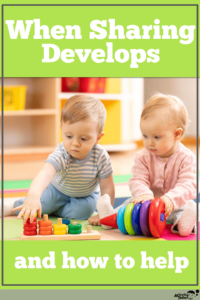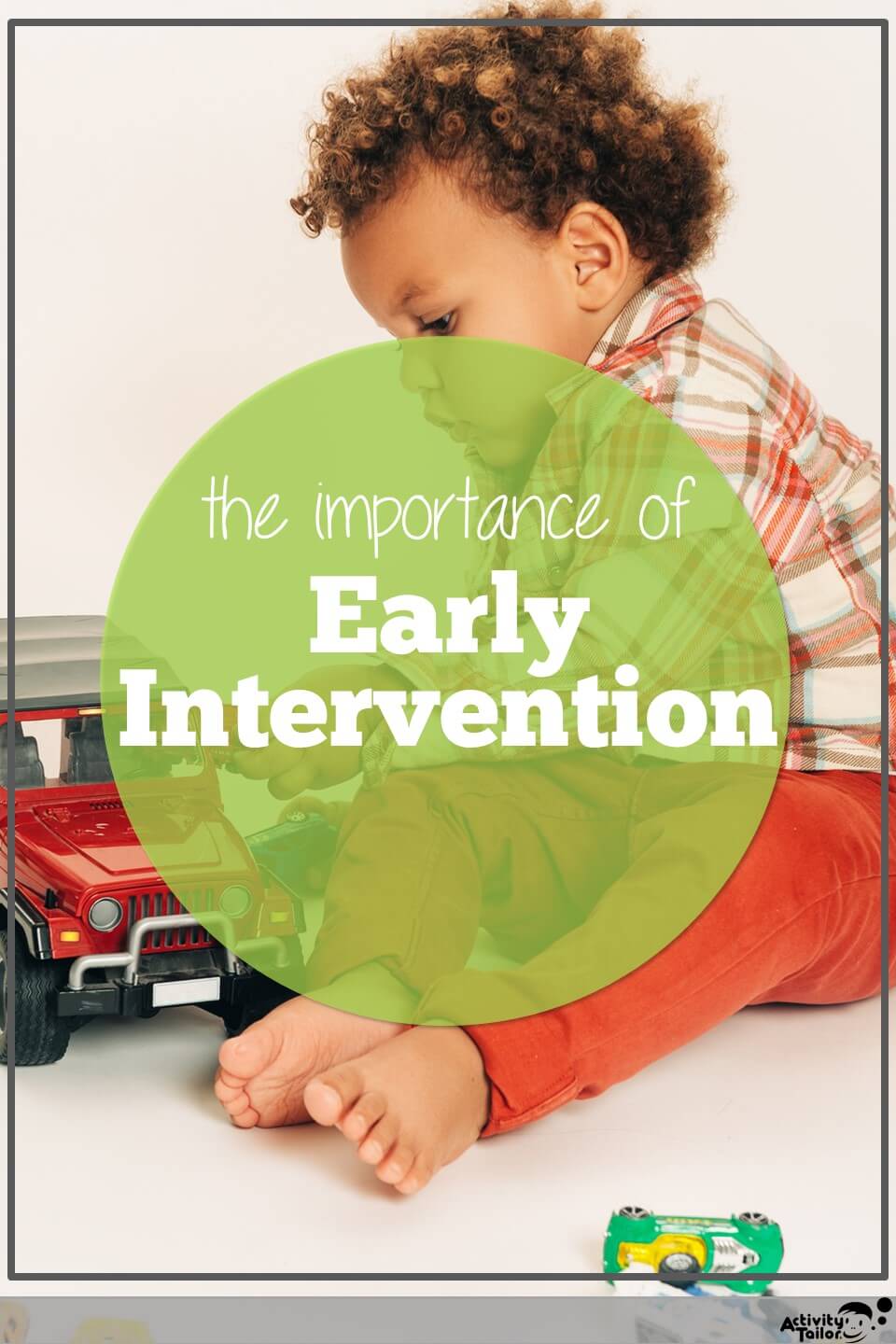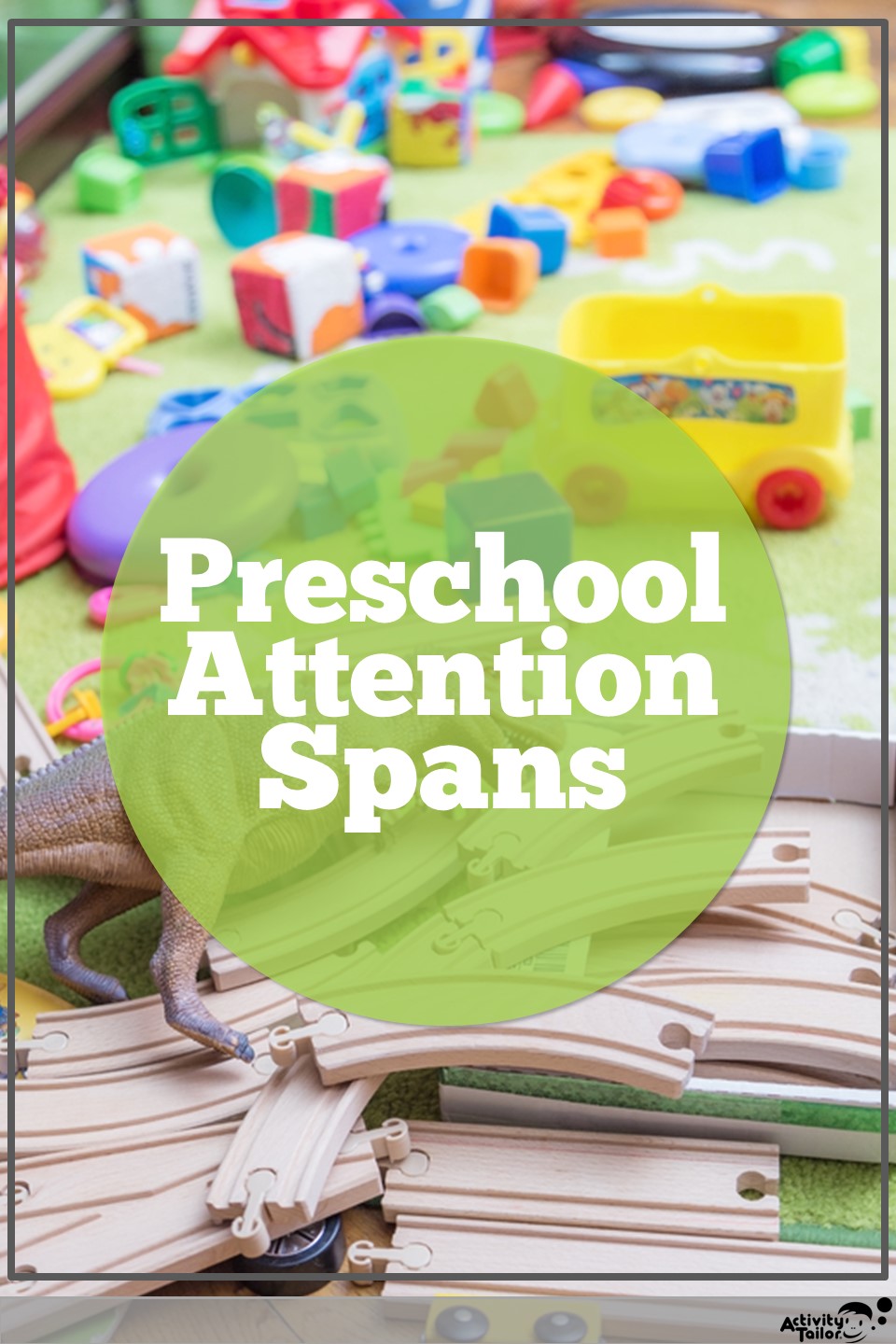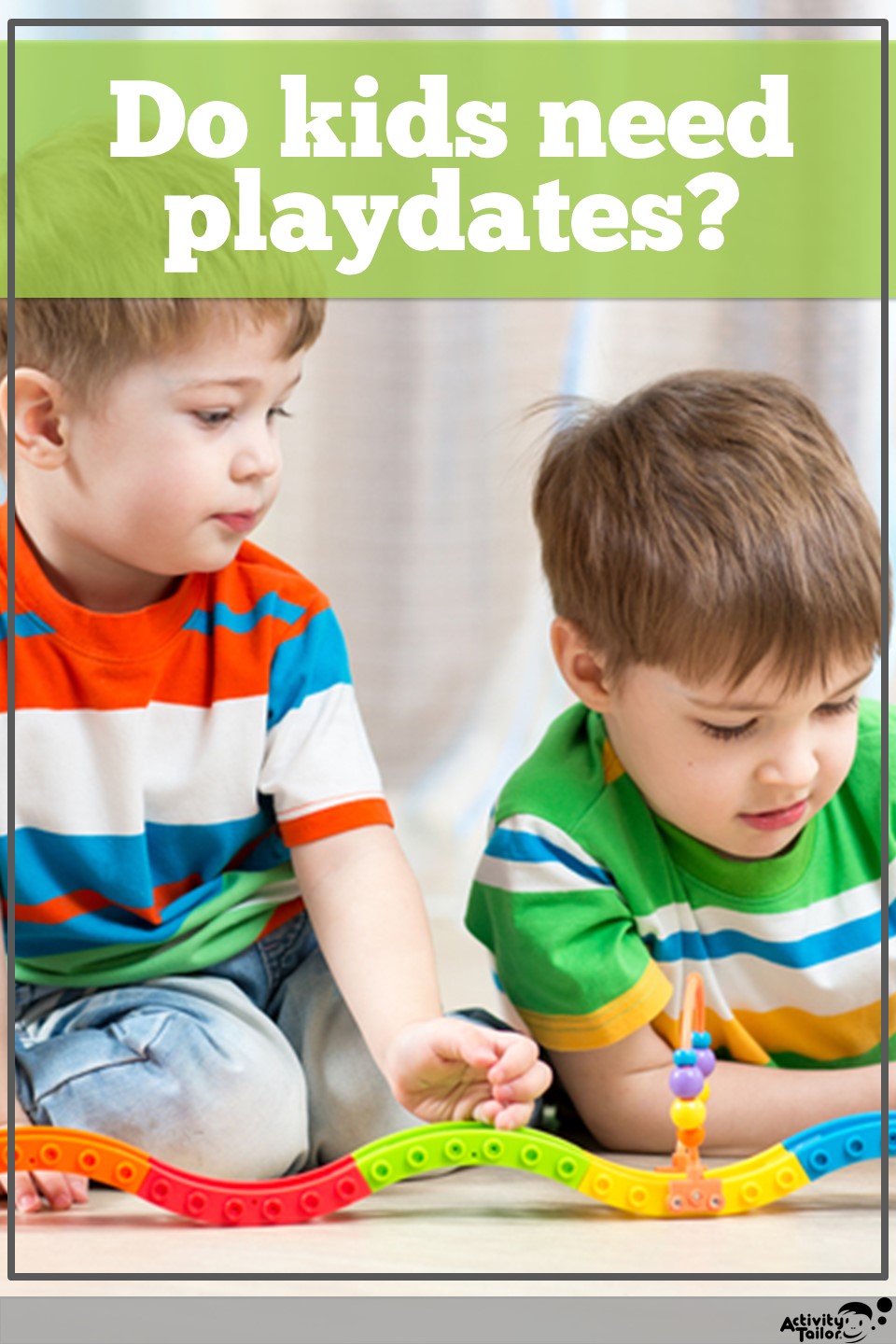Share, please share, share. You likely say this often to your little one. But why? And why don’t they understand? Teaching little ones how to share can feel like such a challenge. Let’s chat about why this is often the case and how you can help teach sharing to your toddler or preschooler.
Why is Sharing Important?
Sharing promotes compromise and fairness. It is vital for developing lasting friendships, cooperating with others, learning how to wait, negotiating skills, and managing feelings of disappointment.
Sharing back and forth in play also sets the stage for the back and forth style of communication as two people take turns speaking to one another.
Sharing is an important life skill!
Why is Sharing so Hard?
True sharing is not developmentally appropriate before the age of 3!
Shocker, right?!
According to Mildred Parten’s research is 1902, there are six developmental stages of play:
- Unoccupied play
- Solitary play
- Onlooker play
- Parallel play
- Associative play
- Cooperative play
Unoccupied Play
This stage is experienced in the first few months of life. A child explores the world with no organization (e.g. finding their toes, waving their limbs in the air)
Solitary Play
In this stage, a child plays alone with toys. This occurs for several months prior to the age of 2.
Onlooker Play
Onlooker play happens when children begin to observe what other children are doing in play. There is no set age when this should occur, but it begins during the solitary play phase.
Parallel Play
During parallel play, children play beside each other but do so independently. This can occur with similar or different toys. Most children play in this capacity between the ages of 2 and 3.
Sharing can begin to occur at the later portion of this phase but is often adult-initiated.
Associative Play
In this stage, children begin to interact with nearby children in play, but they are still not playing together. They may ask a question or trade a toy in this phase. Associative play usually happens between the ages of 3.5 and 4.5.
Sharing happens here some but often only if there is another item to exchange with the other child.
Cooperative Play
Cooperative play is sharing ideas and toys in play. Sharing is (mostly) seamless at this phase. Children work together in dramatic and pretend play while expressing joy and excitement together.
This often occurs between the ages of 4 and 5 years old.
*REMEMBER: Children develop at different rates, so some may be ready to begin sharing sooner than others.
Tips & Tricks to Foster Sharing in Children under the Age of 4
So, now you understand that there’s actually a very valid reason why sharing is so difficult for your child to master, but there are still times when you really need them to share (at daycare, when toy offerings are limited, at a playdate with another parent and child, etc).
Try these tips and tricks to encourage sharing with your young child:
Trade Toys
Encourage little ones to trade similar toys for a brief amount of time. Model how this exchange will occur, and exchange toys at the same time so that your little one does not feel like he is missing out on all of the fun!
Use Visuals
When it’s not possible to trade toys, using a visual is helpful for children to understand they WILL get their toy back.
Try a picture visual of “wait” or a timer on your phone!
Model appropriate language for sharing
Before playtimes, model the exact language a child can use when wanting a toy another child has. Reinforce this communication after moments of frustration when sharing was not successful.
E.g. Can I have a turn please? Let’s trade!
Use Books & Songs to Reinforce Sharing
Research supports that music helps learning occur quicker and easier. Books are helpful visuals for young children when learning new concepts.
You Can Take a Turn, Then I’ll Get it Back!
PBS Kids’ famous Daniel Tiger sings about sharing with others. He learns that he will get his toy back when sharing with others.
I Can Share! by Karen Katz
The simple, repetitive words in this book are appropriate for even the youngest of toddlers! The interactiveness of the flaps keep little ones engaged while you read about sharing.
The Rainbow Fish by Marcus Pfister
This classic child tale introduces sharing in a way that promotes positive friendships.
As an Amazon affiliate, I may receive a small commission when you use the links in my post. There is no increase in the price you pay!
Practice, Practice, Practice!
Sharing is difficult for toddlers and many preschoolers, and rightfully so! Be patient as you practice sharing with your child. It will take time, but they WILL accomplish this skill!
Keeping the stages of play in mind will help you lessen your frustration and persevere through the developmental hump of sharing with your child.
Don’t forget, you’re exactly the parent your child needs!
Looking for other tips to support your child? Check out our Caregiver Webinars.








